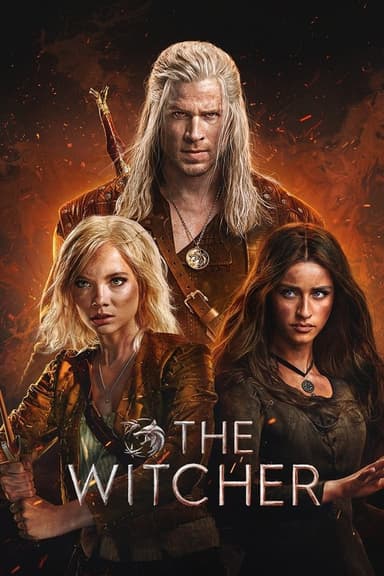
Gormenghast
2000 • Drama, Sci-Fi & Fantasy • NR
At the Castle of Gormenghast, the Groan family has ruled with dusty ceremony for more than seventy generations. A clever and ambitious new kitchen boy, Steerpike, begins to insinuate himself into the affections of Lady Fuchsia Groan and to murder his way to power.
Why you should read the novels
Immersing yourself in Mervyn Peake’s original novels offers a far deeper experience than watching the TV adaptation. Peake's writing style is a feast for the imagination, filled with beautifully crafted prose and intricate descriptions that bring the ancient world of Gormenghast to life in a way that television simply cannot capture.
The books provide intricate insights into each character's thoughts and motivations, allowing readers to form richer connections with Titus, Steerpike, and the bizarre inhabitants of the castle. The novels’ languid pacing and detailed atmosphere expand the environment, catapulting the reader into a labyrinth of customs, rituals, and darkly comic situations too complex for screen translation.
With their unique blend of fantasy, satire, and psychological drama, the Gormenghast books offer both literary depth and unrivaled creativity. By reading the novels, you're rewarded not only with the main story but with a masterpiece of language and imagination, elevating the experience far beyond the visual limits of any adaptation.
Adaptation differences
The TV adaptation of Gormenghast condenses the sprawling narrative found in Mervyn Peake’s novels, focusing primarily on the events of 'Titus Groan' and 'Gormenghast' while omitting or abbreviating significant subplots and characters. Many scenes and passages that develop the atmosphere in the books are significantly shortened or entirely removed to fit the four-part structure of the series, reducing the sense of slow-building tradition and ritual that defines the world of Gormenghast.
Another notable difference is the portrayal of characters, particularly Steerpike and Titus. In the television series, complex motivations and internal conflicts are often simplified or altered for dramatic clarity. Steerpike’s gradual transformation into a villain loses much of its subtlety, and Titus’s coming-of-age elements are streamlined, giving the narrative a more conventional pace and tone compared to the nuanced development in the novels.
Furthermore, the adaptation’s visual style, while impressive, cannot fully replicate the heightened, dreamlike quality of Peake’s prose. The elaborate and iconic imagery rendered on screen gives viewers a taste of Gormenghast’s unique atmosphere, but it can’t substitute for the immersive world-building that comes from Peake’s linguistic inventiveness and psychological insights.
Lastly, the TV series does not extend to Peake's third book in the trilogy, 'Titus Alone,' thus omitting Titus's journey beyond the walls of Gormenghast and the wider thematic explorations of identity and modernity. Consequently, the adaptation offers only a partial glimpse into the larger tapestry of Peake's universe, leaving out crucial layers that make the novels such a unique literary achievement.
Gormenghast inspired from
Titus Groan
by Mervyn Peake
Gormenghast
by Mervyn Peake










